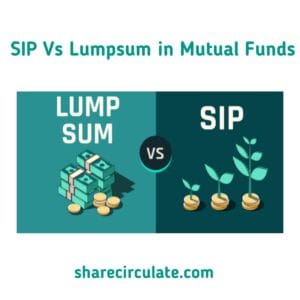Mutual Funds is widely used investment asset class by traders and investors as compared to stock market. Mutual Funds are safe than stocks. In long term stocks will generate more return on investment but mutual funds are very safe.
Ketwich founded mutual fund like structure for small investors to mitigate their risk in 1774 in Netherland. Van ketwich innovation came into play in early 1800’s for investors to parked their money into shares.
Today, mutual funds is playing a dominant force in global economics, with trillions of dollars in assets under management. Technological advancements have further democratized investing into mutual funds, allowing individuals to invest in funds through online platforms with minimal fees.
Additionally, new categories of funds like index funds, ETFs such as socially responsible funds and target-date funds, have emerged to meet the evolving needs of investors with time.
What is Mutual Funds ?
Mutual Funds refers to pool of investors money that is parked into group of companies to mitigate risk and give higher returns with less knowledge about financial markets.
It is manage by qualified professionals who invest money to get higher returns on low investment and charge commission.
There are many types of mutual funds based on return, risk and liquidity. Equity Funds, Debt Funds, Hybrid Funds, Index Funds, Liquid Funds.
Equity Funds primarily invest into shares based on large cap, mid caps and small cap companies. Equity funds is very risky because their underlying asset in companies. When economic activities are slowed down then companies revenue impacted then mutual fund returns also down.
Debt Funds invest into fixed securities like bonds. Hybrid Funds are mixture of both equity and Debt. Index Funds are copy of exchanges index. Liquid Funds are treasury bills, commercial papers and certificates of deposits.
In mutual funds their are two ways to invest money first one is through SIP and second is Lumpsum or One Time.
What is SIP ( Systematic Investment Plan ) ?
Systematic Investment Plan (SIP) is a disciplined approach of investing fixed amount of money into funds at any fixed date by investors. SIP investment doesn’t required to trace stock market time to time because you don’t need to worry about major events. SIP mitigate and give average returns on yearly basis. It is automatic and done by bank if you give them permission.

What is Lumpsum in Mutual Funds ?
Lumpsum is a one time investment into mutual fund and done by humans. You can invest large amount of money into funds without restriction like SIP.
Lumpsum is remove flaws of SIP and give more chance to invest when market fall due to sudden events. If any one have large amount then he can invest at one time to get same NAV value for large money.
Difference Between SIP and Lumpsum Investments
Comparison Between SIP and Lumpsum Investment in Mutual Funds for beginners to take correct and inform decision in their investment journey without mistakes.
| Feature | SIP (Systematic Investment Plan) | Lumpsum Investment |
|---|---|---|
| Investment Mode | Regular, periodic investments (monthly, weekly, quarterly) | One-time bulk investment |
| Risk Management | Lower risk due to rupee cost averaging | Higher risk as investment is made at a single market price |
| Market Timing | No need to time the market; spreads investment over time | Requires proper timing to maximize returns |
| Volatility Impact | Less impacted by market fluctuations due to staggered investments | More impacted by market volatility if invested at a high point |
| Compounding Benefits | Benefits from long-term compounding with small, consistent investments | Higher potential gains if invested early and the market grows |
| Affordability | Suitable for all investors; can start with as little as ₹500 per month | Requires a large sum of money upfront |
| Flexibility | Investors can increase, decrease, or stop SIP anytime | No flexibility after the investment is made |
| Emotional Control | Encourages disciplined investing and avoids impulsive decisions | Investors may panic and redeem in case of market downturns |
| Best Suited For | Salaried individuals or those with regular income | Investors with surplus funds and risk appetite |
It depend on investors, if they have less knowledge and don’t have much time to trace market then choose SIP.
Otherwise Lumpsum is best if you trace on daily basis. Lumpsum give more returns than SIP because you buy NAV when market fall and doesn’t invest when market up means you’re averaging only when market falls.








a28tkj
2xhp4f